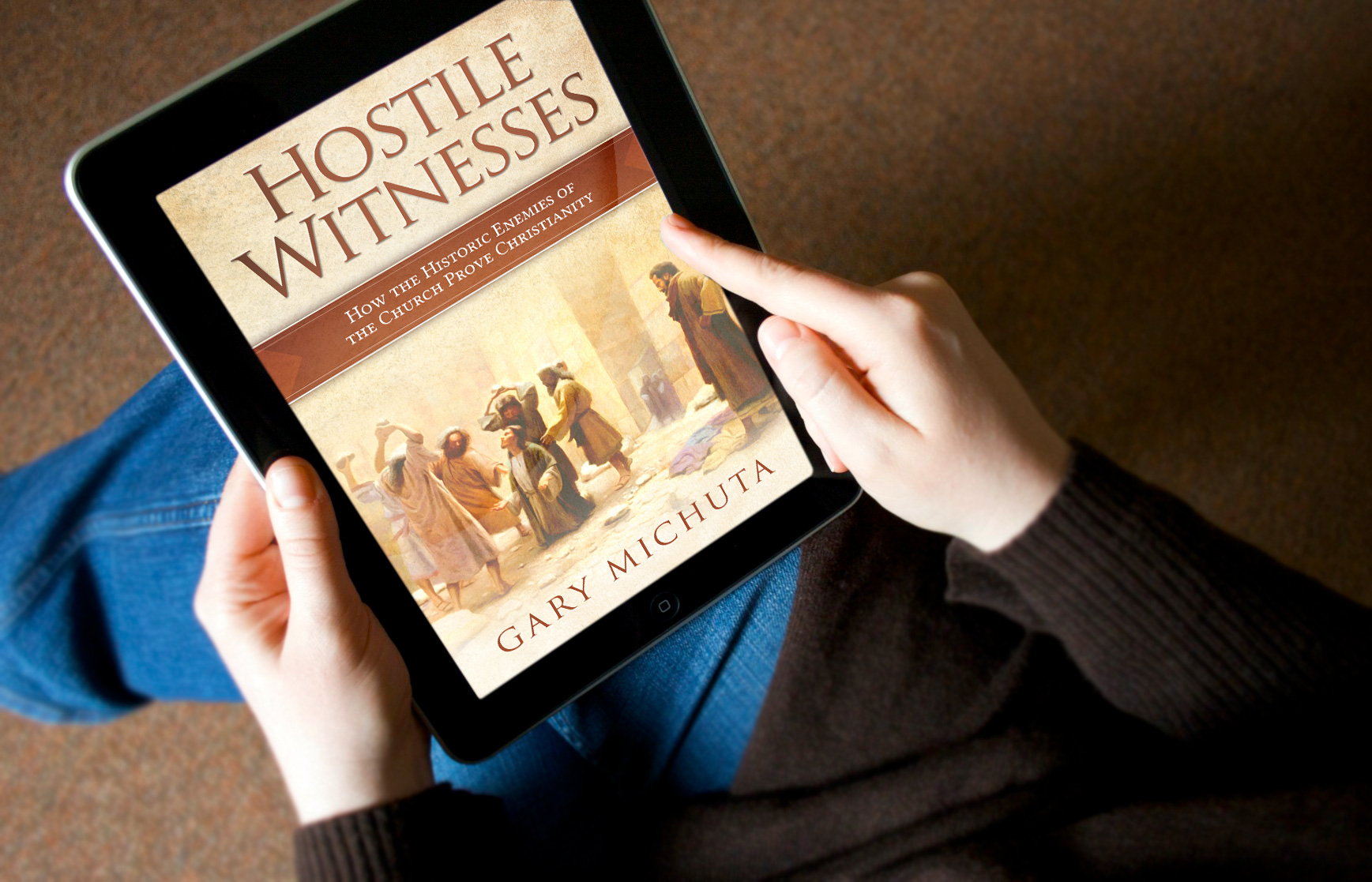Hostile Witness to the Gospel - King Herod and the Promised Messiah
We’ve seen this movie a hundred times.
The man in power feels threatened and uses any means necessary to wipe out those who threaten his power.
It’s a story of power, deception, subterfuge, and bloodshed, but ultimately good triumphs over evil.
Only it’s not a movie – It’s the story of Herod, the Holy Family, and the Holy innocents.
In this excerpt from his book Hostile Witnesses, author Gary Michuta looks at how the actions of King Herod the Great testify to Jesus being the fulfillment as the promised Messiah
Julius Caesar (100–44 B.C.) appointed Herod procurator of Judaea in 47 B.C. The Roman senate eventually appointed Herod to be the “king of the Jews.”
Herod’s control of Judaea wasn’t immediate; it took years for him to secure control over it. Even after Herod’s kingship was secured, the Jewish people never fully embraced him because of his Idumean descent.
In the Old Testament, God promised David that his descendants would occupy the throne (2 Sam. 7:16-17; Ps. 89:4-5, 110:1-2, 132:11; Jer. 33:17); and since Herod was not Davidic, his kingship wasn’t considered—for lack of a better word—kosher.
Herod knew this, and his insecurity shows up in a number of ways, such as by his attempt to ingratiate himself with the Jews through various building projects, especially the improvement and expansion of the Jerusalem temple. He also was a ruthless murderer, executing anyone that he believed was a threat to his throne, including his own family members—causing Caesar Augustus (63 B.C.-A.D. 14) to quip, “It’s better to be Herod’s pig than a son.”
The Coming of the Messiah
Testimony - Matthew 2:8
He sent them to Bethlehem and said, “Go and search diligently for the child. When you have found him, bring me word, that I too may go and do him homage.”
Comment
When eastern Magi arrived in Jerusalem claiming they’d seen a sign in the heavens that the king of the Jews had been born (Matt. 2:2), Herod immediately understood that they were referring to the Messiah King (Matt. 2:3-4). After consulting Micah 5:1, which identified the Messiah’s birthplace as Bethlehem, he instructed the Magi to find the child and to return with news of him so that he “may go and do him homage.”
Whether or not Herod believed in the Messiah, he knew that the people believed, and any such claimant in the people’s eyes would have a more legitimate right to the throne than Herod himself. Therefore, he feigned piety in order to identify the individual and kill him. When this failed, Herod “ordered the massacre of all the boys in Bethlehem and its vicinity two years old and under” (Matt. 2:16).
Note: Some doubt the historicity of the murder of the Holy Innocents. The denial is based entirely on silence, especially that of the first century Jewish historian Josephus. However, there are several reasons why Josephus's silence is not indisputable evidence. First, it was once thought that the number of innocents killed by Herod ran into the thousands. The best estimates now place the number at less than twenty, a comparatively insignificant figure compared to the carnage wrought by Herod. Second, there's no indication that Josephus intended to chronicle every atrocity committed by Herod; he recorded only what he wished. One may say that this is still a significant omission, but Josephus also makes significant omissions elsewhere on other topics. For example, his detailed treatment of the Essenes entirely omits any mention of their apocalyptic worldview, the hallmark of the group. Third, it is quite possible that Josephus may not have connected the murders in Bethlehem with Herod. Matt. 2:16 does not say Herod ordered the murders (making it an official act), but rather "[Herod] sent and killed" (καὶ ἀποστείλας ἀνεῖλεν). It's quite possible that these murders were conducted by banditti, not by Herod's troops (see Protoevangelium of James, 22). If this is so, Josephus, not knowing the background that precipitated the slaughter, may not have connected the murders with Herod.
Hostile Witness
There are some today who claim that first-century Jews weren’t expecting the imminent arrival of the Messiah. Herod’s actions clearly speak against this idea.
When the Magi approached Herod claiming that a king had been born, Herod did not question whether the Messiah was to be born at that time. Instead, he inquired where he would be born. This suggests that there was already (ca. 4 B.C.) a common expectation of the Messiah’s imminent arrival.
Herod’s actions point to this expectation, as will later hostile witnesses (Tacitus) who will likewise note such an expectation.
Recent Posts
-
What's Right, and What's Wrong—Salvation Hangs In the Balance
The Catholic Church teaches us what actions are gravely sinful and must be avoided so we do not for …Feb 17th 2026 -
Hasty Generalizations and True Scotsmen
No True Scotsman is a type of logical fallacy that involves making exceptions when a claim is contr …Feb 16th 2026 -
Saved By Faith Alone?
The Protestant Reformation was launched when a Catholic priest named Martin Luther thought he’d dis …Feb 10th 2026










